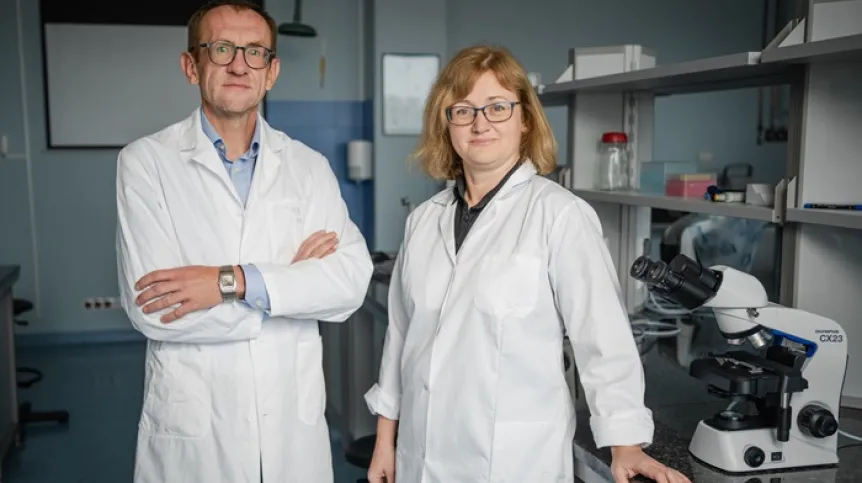
The Onko-SPARK project carried out at the Wroclaw Medical University may revolutionize cancer treatment. The research hypothesis assumes that the combination of new chemical compounds and electroporation will enhance their anti-cancer potential and will be more patient-friendly.
According to the Wroclaw Medical University press release, thanks to the Onko-SPARK project, new, more effective and safer methods of combating cancer will be developed.
'The Onko-SPARK project focuses on developing new chemical compounds - derivatives of dimethylpyridine-3-carboxamide - as potential anticancer drugs. Previous studies by the team from the Department of Molecular and Cellular Biology at the Wroclaw Medical University confirm the strong anti-cancer effects of these compounds. They can selectively destroy cancer cells, inhibit their development and hinder the formation of metastases. If they were delivered directly to cancer cells, such targeted therapy could minimize the toxic effect on healthy tissues', we read in the release.
Project manager Professor Julita Kulbacka explains that electroporation, a method of temporarily 'opening' cell membranes with electrical impulses, offers this possibility.
'This facilitates effective penetration of drugs into cancer cells and increases their therapeutic effect. Our research hypothesis assumes that the combination of new chemical compounds and electroporation will enhance their anti-cancer potential. Our goal is to create a therapy that will not only be effective, but also more patient-friendly. As a result, we want to reduce the toxicity of treatment and improve the quality of life of patients', says Kulbacka, quoted in the release.
Scientists from the Wroclaw Medical University, led by Professor Julita Kulbacka from the Department and Institute of Molecular and Cell Biology and the second project manager Piotr Świątek, PhD, a professor at the Department and Institute of Medicinal Chemistry of the Wroclaw Medical University, are working on a breakthrough solution.
'The project is based on new compounds from the group of derivatives of 4,6-dimethyl-N-(2-hydrazinyl-2-oxoethyl)-2-sulfanylpyridine-3-carboxamide. The compounds, including hydrazides and triazole and oxadiazole derivatives, were developed by Piotr Świątek and his team', we read in the release.
The Onko-SPARK project also assumes the use of advanced research models, such as cell cultures in 2D and 3D systems (called spheroids), which better reflect the conditions in the human body. This allows for a more accurate assessment of the effectiveness and safety of new therapies.
Another important part of the project is also the pharmacokinetic analysis, covering the absorption, metabolism and excretion of compounds. As the researchers explain, this is crucial for determining how the tested substances behave in the body and how they can be used in the treatment of cancer.
The Onko-SPARK project will allow to develop new chemical compounds characterized by high selectivity towards cancer cells and low toxicity to healthy tissues. 'It can lead to a reduction in the number and intensity of adverse effects associated with traditional chemotherapy. Their reduction is crucial for improving the quality of life of cancer patients, who often suffer from the side effects of therapy', Kulbacka concludes.
The Onko-SPARK project is co-financed with an amount of over PLN 6 million from the National Reconstruction Plan. (PAP)
ros/ agt/













